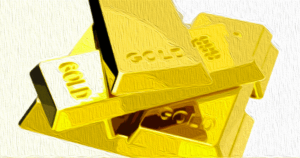
Introduction
Money is a form of energy. We expend energy to do work and are rewarded with monetary energy. In a world filled with instability and chaos, preserving monetary energy becomes crucial. When it comes to wealth preservation and store of value, Bitcoin is a better choice compared to real estate, especially in the Nigerian and African context.
Real Estate in Africa
Africa is not just about safaris and wildlife; it has also experienced a boom in the real estate industry. With factors like population growth, economic development, and urbanization, African cities, including Lagos, have undergone massive transformations. Lagos, the economic hub of Nigeria, offers a vibrant real estate market with opportunities for investors and developers. From luxury apartments with ocean views to affordable housing units, the city caters to a diverse market.
The Caveat
While real estate in Lagos and Africa may seem appealing, it comes with its own challenges. Property taxes, construction costs, currency depreciation, and lack of funding are some of the criticisms against real estate investment. However, one particular challenge in Nigeria is state government land/property repossession. Land/property owners have faced prolonged litigations and inadequate compensations, leading to property abandonment.
Land/Property Repossession and Reclamation
The Land Use Act in Nigeria gives governors the power to revoke land ownership for public interest purposes. However, there have been cases of non-existent or inadequate compensations, leading to prolonged litigations and property abandonment. Recent cases in Lagos and Benin City highlight the challenges faced by property owners in Nigeria, including demolitions and land grabbing.
Why Bitcoin is the Better Choice
Bitcoin offers several advantages over real estate when it comes to wealth preservation. Bitcoin's decentralized nature ensures that it cannot be confiscated by any government. It also eliminates the construction and maintenance costs associated with real estate. Property taxes are no longer a concern, and Bitcoin's portability allows for easy transfer of value across borders.
Conclusion
Real estate was originally intended to fulfill the need for shelter but has now become a tool for wealth preservation. However, the intrusion of fiat currencies and their monetary policies has distorted the narrative. In this complex economic landscape, Bitcoin emerges as a revolutionary form of decentralized money and a powerful tool for wealth preservation. As fiat currencies continue to face challenges, Bitcoin offers individuals a means to navigate the pitfalls of the current system and preserve their wealth.
This is a guest post by Emeka Ugbah. Opinions expressed are entirely their own and do not necessarily reflect those of BTC Inc or Bitcoin Magazine.

Frequently Asked Questions
How does a Gold IRA account work?
Individuals who want to invest with precious metals may use the Gold Ira accounts, which are tax-free.
You can buy physical gold bullion coins at any time. You don’t have to wait to begin investing in gold.
Owning gold as an IRA has the advantage of allowing you to keep it forever. You won't have to pay taxes on your gold investments when you die.
Your gold is passed to your heirs without capital gains tax. Your gold is not part of your estate and you don't have to include it in the final estate report.
To open a gold IRA, you will first need to create an individual retirement account (IRA). Once you've done that, you'll receive an IRA custody. This company acts as an intermediary between you and IRS.
Your gold IRA Custodian will manage the paperwork and submit all necessary forms to IRS. This includes filing annual reporting.
After you have established your gold IRA you will be able purchase gold bullion coin. Minimum deposit is $1,000 If you make more, however, you will get a higher interest rate.
Taxes will apply to gold that you take out of an IRA. If you're withdrawing the entire balance, you'll owe income taxes plus a 10 percent penalty.
If you only take out a very small percentage of your income, you may not need to pay tax. However, there are exceptions. You'll owe federal income tax and a 20% penalty if you take out more than 30% of your total IRA assets.
You shouldn't take out more then 50% of your total IRA assets annually. If you do, you could face severe financial consequences.
What are some of the advantages and disadvantages to a gold IRA
An Individual Retirement Account is a more beneficial option than regular savings accounts. You don't pay taxes on any interest earned. This makes an IRA great for people who want to save money but don't want to pay tax on the interest they earn. But, this type of investment comes with its own set of disadvantages.
For example, if you withdraw too much from your IRA once, you could lose all your accumulated funds. Also, the IRS may not allow you to make withdrawals from your IRA until you're 59 1/2 years old. If you do withdraw funds from your IRA you will most likely be required to pay a penalty.
You will also need to pay fees for managing your IRA. Many banks charge between 0.5%-2.0% per year. Other providers may charge monthly management fees, ranging between $10 and $50.
If you prefer your money to be kept out of a bank, then you will need insurance. In order to make a claim, most insurers will require that you have a minimum amount in gold. Insurance that covers losses upto $500,000.
If you choose to have a gold IRA you will need to establish how much gold to use. Some providers restrict the amount you can own in gold. Others allow you to pick your weight.
You'll also need to decide whether to buy physical gold or futures contracts. The price of physical gold is higher than that of gold futures. Futures contracts, however, allow for greater flexibility in buying gold. You can set up futures contracts with a fixed expiration date.
Also, you will need to decide on the type of insurance coverage you would like. The standard policy does not include theft protection or loss caused by fire, flood, earthquake. It does offer coverage for natural disasters. You might consider purchasing additional coverage if your area is at high risk.
You should also consider the cost of storage for your gold. Insurance won't cover storage costs. Safekeeping costs can be as high as $25-40 per month at most banks.
If you decide to open a gold IRA, you must first contact a qualified custodian. A custodian maintains track of all your investments and ensures you are in compliance with federal regulations. Custodians can't sell assets. Instead, they must retain them for as long and as you require.
After you've determined which type of IRA is best for you, fill out the paperwork indicating your goals. You should also include information about your desired investments, such as stocks or bonds, mutual funds, real estate, and mutual funds. You should also specify how much you want to invest each month.
After filling out the forms, you'll need to send them to your chosen provider along with a check for a small deposit. After receiving your application, the company will review it and mail you a confirmation letter.
You should consult a financial planner before opening a Gold IRA. Financial planners have extensive knowledge in investing and can help determine the best type of IRA to suit your needs. They can also help you lower your expenses by finding cheaper alternatives to purchasing insurance.
How is gold taxed in an IRA?
The fair market value at the time of sale is what determines how much tax you pay on gold sales. Gold is not subject to tax when it's purchased. It's not considered income. If you sell it after the purchase, you will get a tax-deductible gain if you increase the price.
As collateral for loans, gold is possible. Lenders look for the highest return when you borrow against assets. For gold, this means selling it. However, there is no guarantee that the lender would do this. They may just keep it. Or, they may decide to resell the item themselves. You lose potential profits in either case.
If you plan on using your gold as collateral, then you shouldn't lend against it. If you don't plan to use it as collateral, it is better to let it be.
Statistics
- Contribution limits$6,000 (49 and under) $7,000 (50 and up)$6,000 (49 and under) $7,000 (50 and up)$58,000 or 25% of your annual compensation (whichever is smaller) (lendedu.com)
- If you take distributions before hitting 59.5, you'll owe a 10% penalty on the amount withdrawn. (lendedu.com)
- You can only purchase gold bars at least 99.5% purity. (forbes.com)
- Gold is considered a collectible, and profits from a sale are taxed at a maximum rate of 28 percent. (aarp.org)
- Indeed, several financial advisers interviewed for this article suggest you invest 5 to 15 percent of your portfolio in gold, just in case. (aarp.org)
External Links
investopedia.com
- Do You Need a Gold IRA to Get Retirement?
- What are the Options? Types, Spreads and Example. Risk Metrics
irs.gov
wsj.com
- Saddam Hussein's InvasionHelped Uncage a Bear in 1990 – WSJ
- Do you want to keep your IRA gold at home? It's Not Exactly Legal – WSJ
cftc.gov
- Fraud Advisory: Precious Metals Fraud
—————————————————————————————————————————————————————————————-
Based on [POSTTITLE]
by [POSTAUTHOR]














